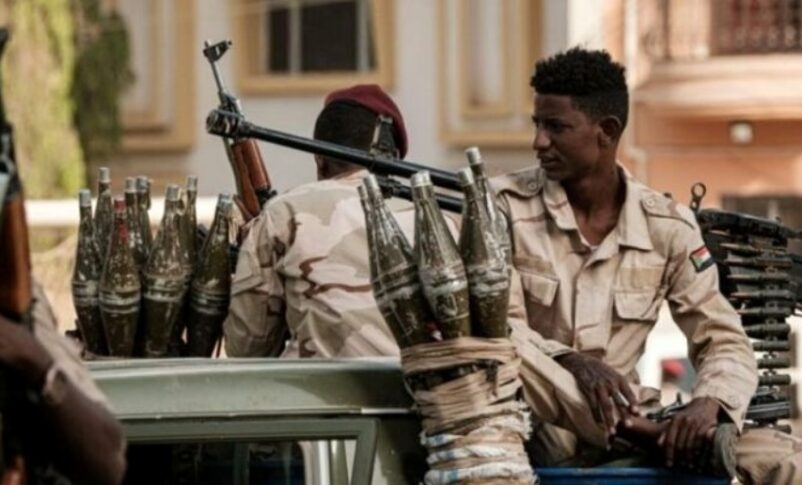Rights body accuses RSF of sexual violence in Darfur region
August 16, 2023 (NAIROBI) – The Rapid Support Forces (RSF), an independent paramilitary force and allied militias in Sudan raped several dozen women and girls in West Darfur’s capital, El Geneina and those fleeing to Chad between late April and June 2023, Human Rights Watch said Thursday.
The assailants, the group said, appear to have targeted people because of their Massalit ethnicity and, in some cases, because they were known activists.
Since the start of armed conflict in Sudan between the Sudan Armed Forces and the RSF on April 15, the RSF and predominantly Arab allied militias have carried out repeated attacks on towns and villages in the West Darfur state.
These attacks, according the U.S-based rights group, have mainly targeted areas inhabited by one of the main non-Arab communities, the Massalit.
It, for instance, stated that attacks on the city of El Geneina began on April 24 and continued through late June, causing numerous civilian deaths and injuries, and forcing over 366,000 people to flee to neighbouring Chad.
“The Rapid Support Forces and allied militias appear responsible for a staggering number of rapes and other war crimes during their attack on El Geneina,” said Belkis Wille, the associate crisis and conflict director at Human Rights Watch.
“The UN Security Council should show those responsible for abuses that the world is watching by taking urgent steps to bring an end to these atrocities,” he added.
In late July, the rights group said it interviewed nine women in Chad and a 15-year-old girl from El Geneina who are survivors of rape and other forms of sexual violence. Four, including the girl, were raped by multiple men, it said.
Human Rights Watch also interviewed four women who witnessed sexual violence or the immediate aftermath, along with five service providers, including medical workers who had supported sexual violence victims in El Geneina. Based on survivors’ personal experiences and incidents they also witnessed, as well as information shared with service providers, including locations where the incidents occurred, Human Rights Watch documented 78 victims, or survivors of rape between April 24 and June 26.
Survivors who spoke to Human Rights Watch said that between one and six armed assailants carried out the sexual violence. Most groups of assailants included men wearing full or partial RSF uniforms and some in civilian clothes. In many instances, they arrived in RSF-marked vehicles. One woman recognized her assailant as an Arab resident of El Geneina.
In almost all instances reported to Human Rights Watch, those responsible for the rapes also committed other grave abuses including beatings, killings, looting, or burning homes, businesses or government buildings.
The rights group, however, said the RSF and allied militias should fully abide by international humanitarian law, including by adopting measures to end rape and other sexual violence by their forces. It stressed that those responsible for serious abuses, including senior commanders, should be appropriately punished.
It also called on the United Nations Security Council member countries to publicly identify and condemn governments not respecting the existing arms embargo on Darfur, and impose targeted sanctions against commanders and officials responsible for serious abuses, including sexual violence.
“The council should also invite members of war-affected communities in Darfur, including survivors of sexual violence, to brief the council,” the group stated.
The group also urged the European Union and other concerned governments, including the U.S, to urgently impose targeted sanctions on leaders of the RSF, the Sudan army and armed groups responsible for serious abuses against civilians.
Since 2019, Human Rights Watch observed, the RSF and allied militias have recurrently fought Massalit armed groups in West Darfur. Historical grievances based on ethnicity, including the Sudanese government’s failure to address land access and ownership, have also fueled tensions. A lack of justice for past violations of rights and the proliferation of weapons, along with the absence of any security sector reform, have added to the strained climate.
(ST)

